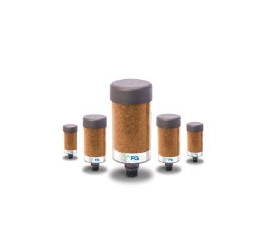2019-10-14

Initial Situation
The wind industry makes an important contribution to the energy revolution and to a future-oriented power supply. In order to have a secure future, wind turbines must be economical. This requires reliable and durable operation even under adverse weather conditions. Our customer is an industry leader in the United States that is committed to sustainability and the consolidation of energy from renewable sources. The Michigan site produces energy for nearly 100,000 homes. In a 90-day comparative study, the TT-4-CV aeration dryer with non-return valve is tested in a wind turbine together with a market competitor’s product.

Challenge
Gears are an essential component in the process of power generation from wind turbines and must be adequately lubricated with well-maintained lubricating oil. Without smooth operation of the primary gearbox, wind energy cannot be converted or efficiently transferred to the power plant of any turbine. If the correct lubrication techniques are not followed, such as monitoring the service life of the lubricating oil, which prevents damage to rotating gears, the efficiency and service life of the oil will drop rapidly. The result is excessive wear on the gears, requiring more frequent replacement of system components. In addition, poorly maintained lubrication increases friction in the drive train, reduces power transmission efficiency and increases operating costs.

Information
Maintaining transmission oil quality is a challenge given the often dirty operating environment.

Solution
At the end of the test phase, the TTI aeration dryer had a 15 % longer service life. The TT-4-CV deaerator has absorbed 17% more moisture, resulting in a more sustainable and efficient solution with lower unit costs. Due to the open environment, temperature and pressure fluctuations, lubricating oil can quickly be saturated with moisture. TTI aeration dryers have been installed to absorb moisture from the oil and improve oil life.

Customer Value
A great advantage is the reduction of maintenance costs and process interruptions. The small process improvement has a stronger and more positive effect on the daily operation and contributes to maintaining the oil quality. Positive results of the study helped TTI Todd Technologies Inc. to win the business with wind turbine operators over its market competitor.